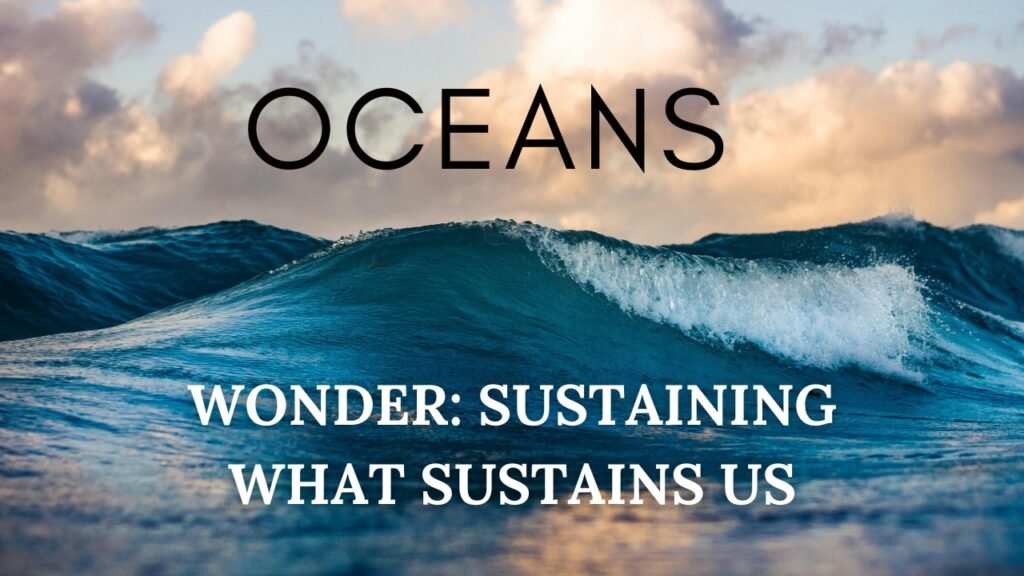Every year, June 8 is celebrated as World Oceans Day. This year too, the world came together to observe this international day with the theme:
“Wonder: Sustaining what sustains us.”
This theme carries deep significance, and we’ll explore the mysteries and roles of the ocean through its two parts:
- Wonder.
- Sustaining what sustains us.
Each part helps us gain a better understanding of the hidden world beneath the waves.
Wonder: The Ocean is Truly a Marvel
The Ocean Is More Mysterious Than Land
When we think of mysteries, our thoughts often turn to the sky or space. But the greatest mystery may lie right here on Earth — deep within the ocean.
About 71% of the Earth’s surface is covered by oceans, while land makes up only about 29%. Despite this, our understanding of the ocean is limited.
According to the U.S. National Oceanic and Atmospheric Administration (NOAA), over 80% of the ocean remains unexplored and unmapped. In contrast, we know more about the surface of the Moon and Mars than we do about the ocean floor.
Hidden in the dark depths of the sea are geographic formations, strange sounds, and unique marine creatures that continue to fascinate researchers and explorers.
Universe vs. Ocean: A Curious Comparison
While the universe is boundless, we’ve surprisingly gathered more data about distant galaxies than we have about our seas. For instance:
Humans have landed on the Moon multiple times.
We are planning missions to Mars.
Yet, the ocean, which is much closer and vital to life on Earth, remains largely unexplored.
Why Is the Ocean Still Unexplored?
Several reasons explain why exploring the ocean is so difficult:
Extreme Pressure:
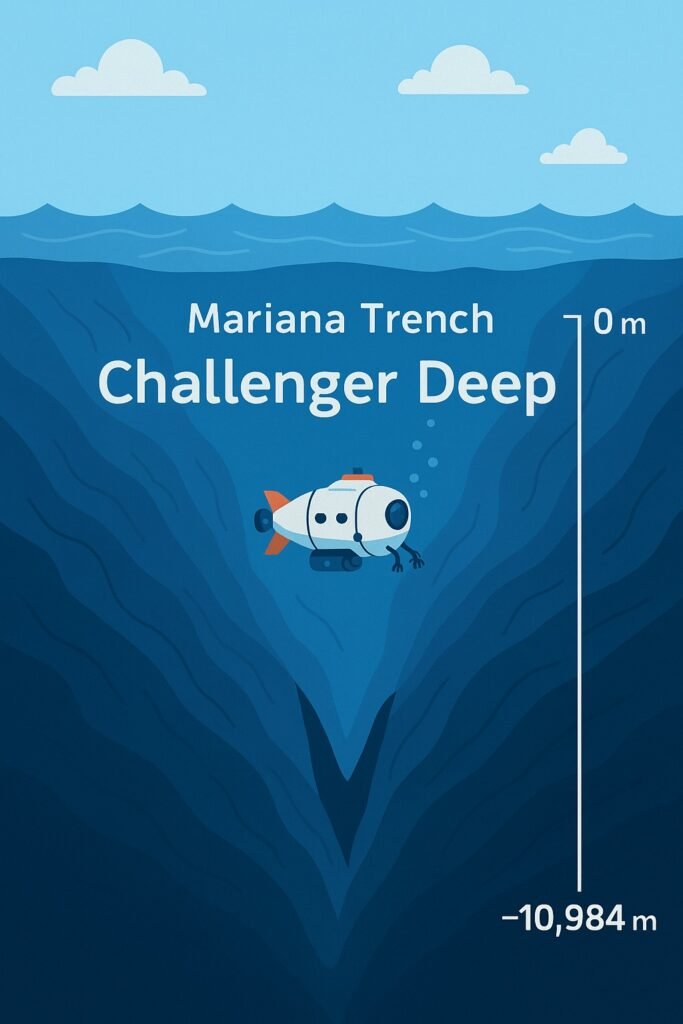
With depth, pressure increases dramatically. The Mariana Trench — the deepest oceanic trench — goes over 36,000 feet deep. At that depth, pressure exceeds 1,000 times the atmospheric pressure at sea level, making it extremely dangerous for human divers.
Complete Darkness:
Sunlight doesn’t penetrate deep into the ocean. This total darkness makes visual exploration nearly impossible without artificial lighting.
Complex Ecosystems:
The presence of unique chemical compositions, extreme temperatures, and diverse marine life forms creates complex ecosystems that are difficult to study.
A Hidden World of Fascinating Creatures
Deep oceans are home to:
Bioluminescent creatures like the flashlight fish, which generate their own light. Doomsday fish, fangtooth fish, Giant Isopod, Vampire squid and Giant squid, rarely seen, dwell in deep sea zones.
Hydrothermal vents and underwater volcanoes, creating entirely unique ecosystems that function independently of sunlight.
Coral reefs, often called “rainforests of the sea,” are home to thousands of marine species.
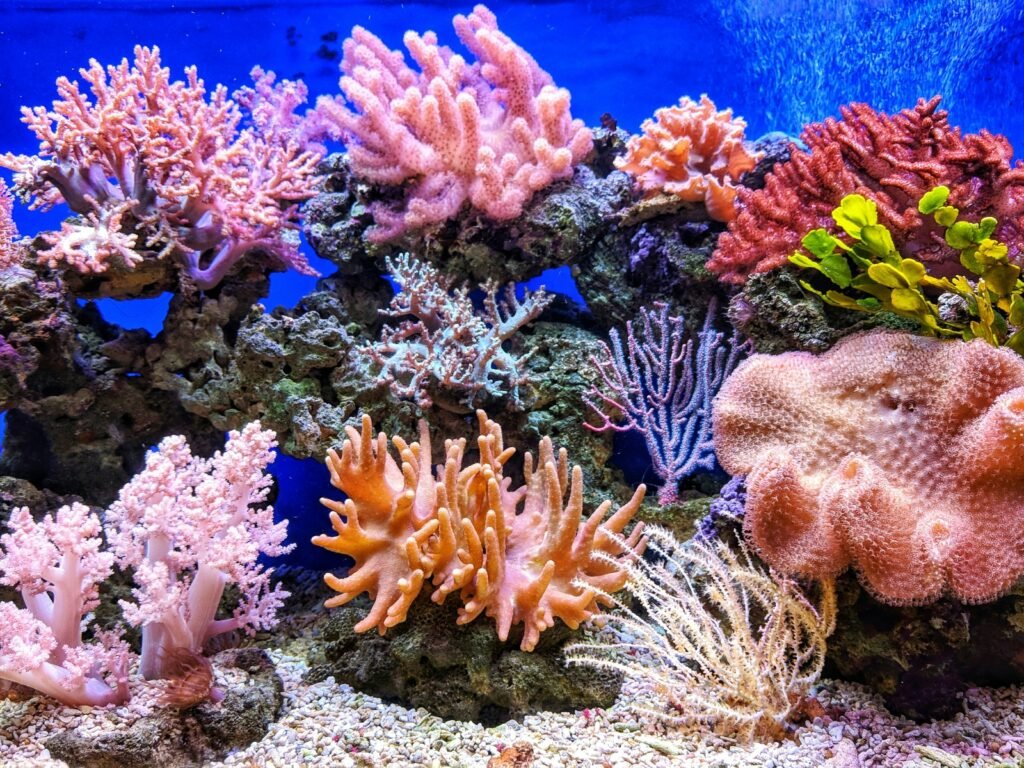
Recent Discoveries
Each year, expeditions such as those by the Schmidt Ocean Institute, NOAA, and Ocean Exploration Trust uncover new marine species. Some recent finds include:
Glass octopus, Dumbo octopus, Translucent fish, Doomsday Fish, Casper Octopus, Guitar Shark.
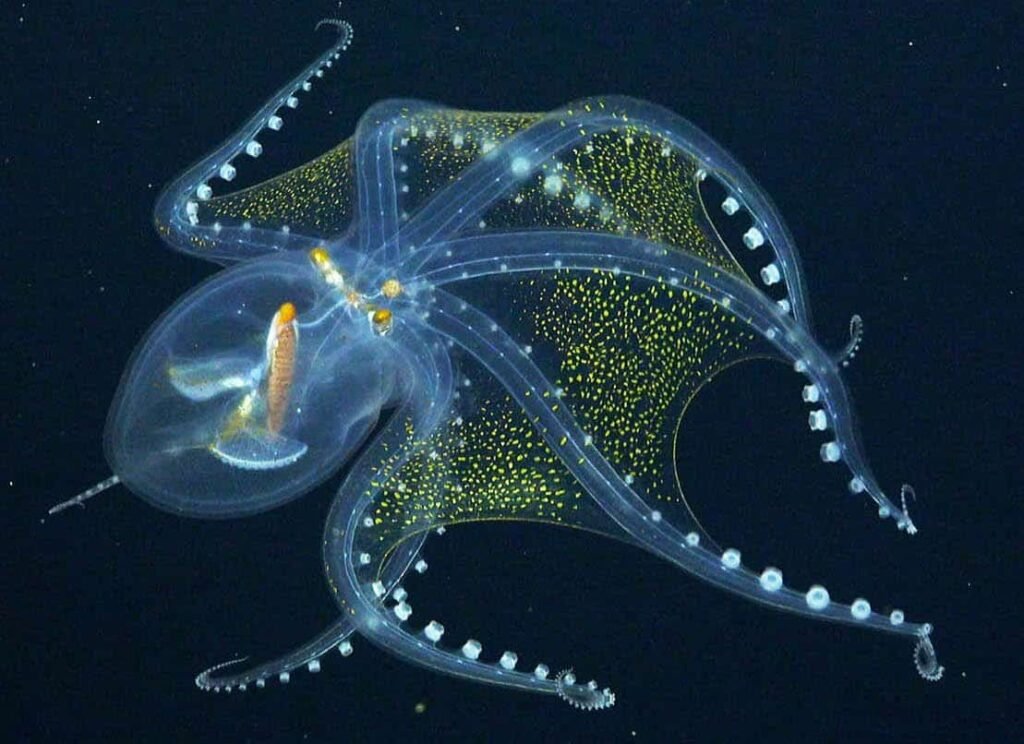
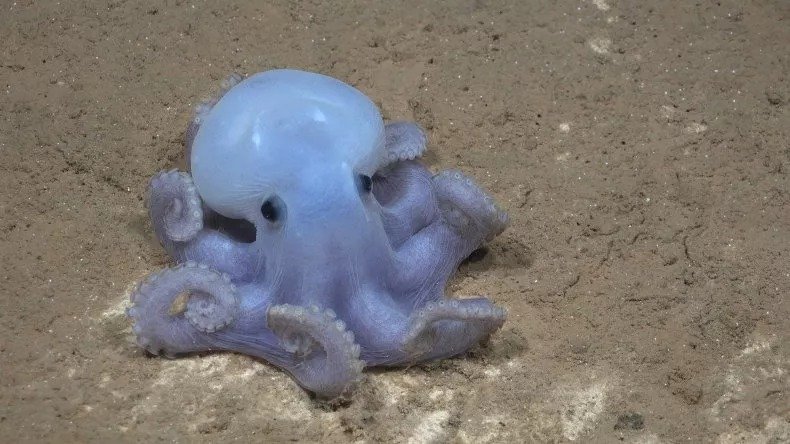
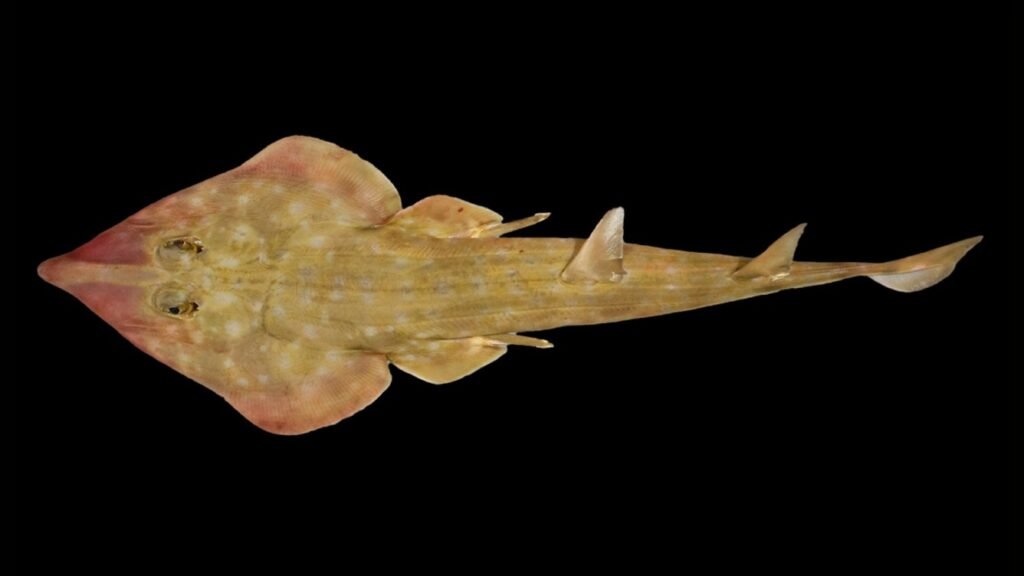
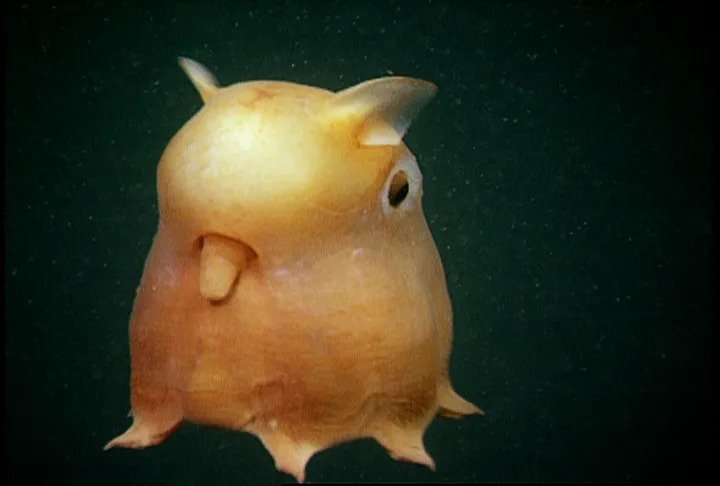
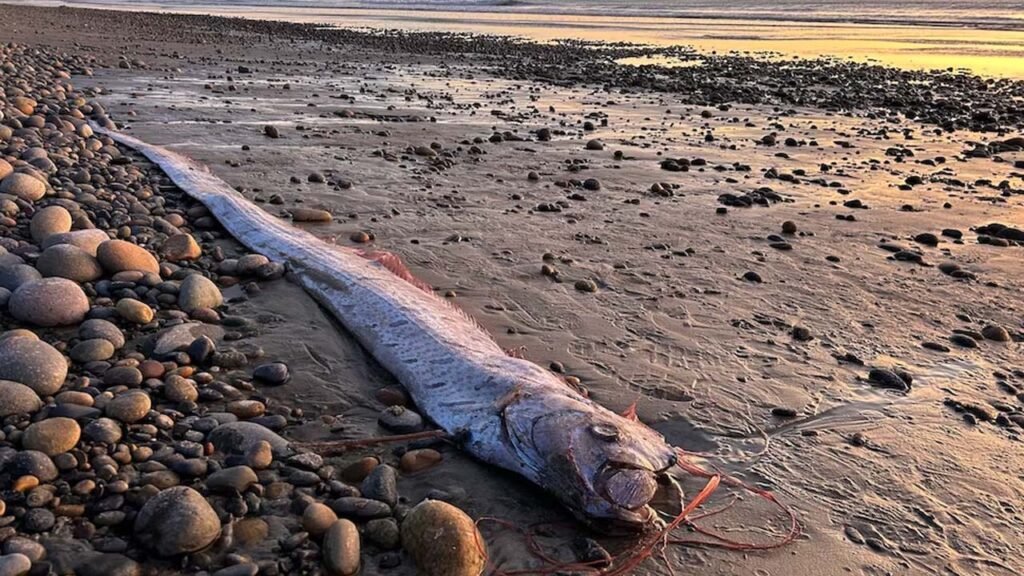
Are There Lost Cities Under the Sea?
Several underwater archaeological sites have been found:
Heracleion, an ancient Egyptian city submerged near Alexandria.
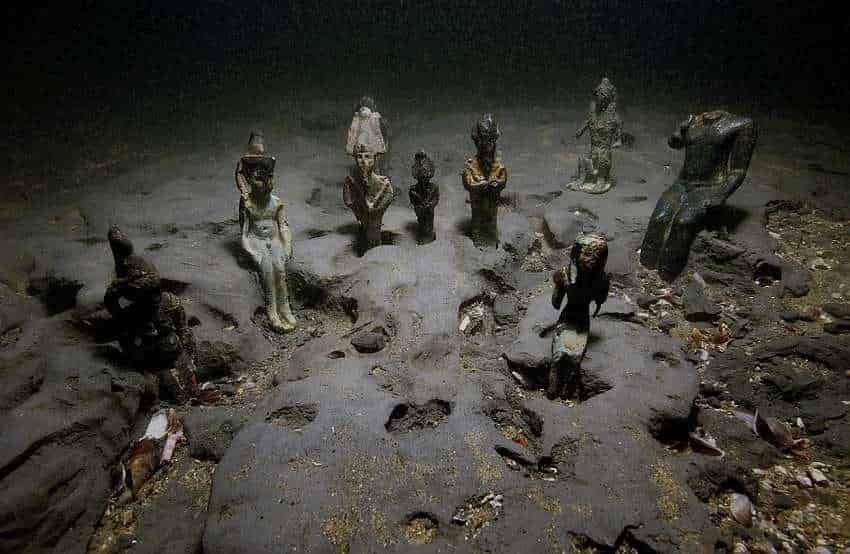
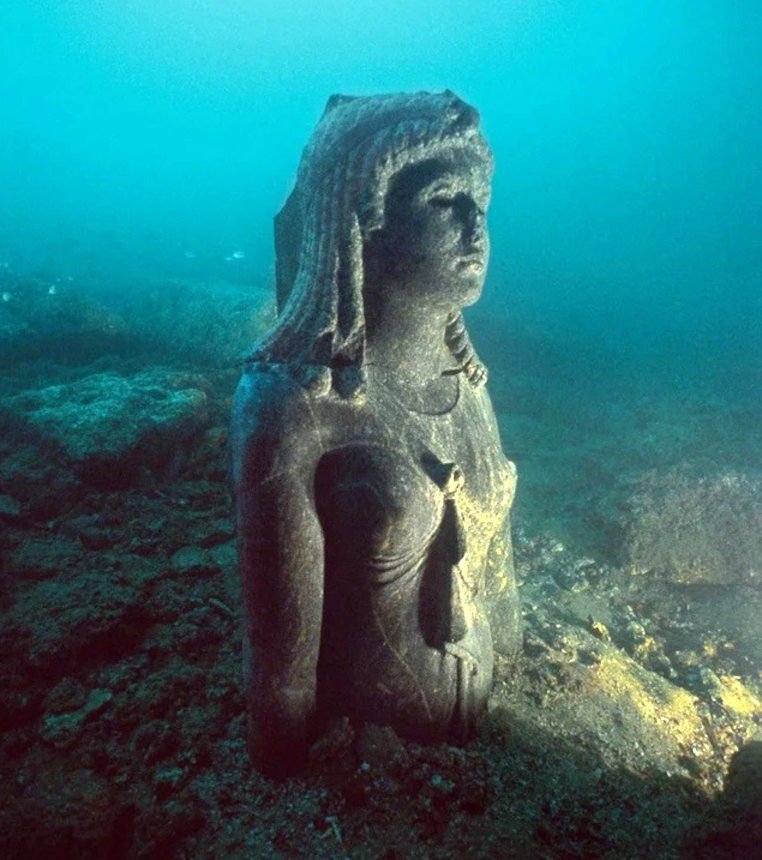
Yonaguni Monument near Japan, which some claim is a man-made structure (though this is debated).
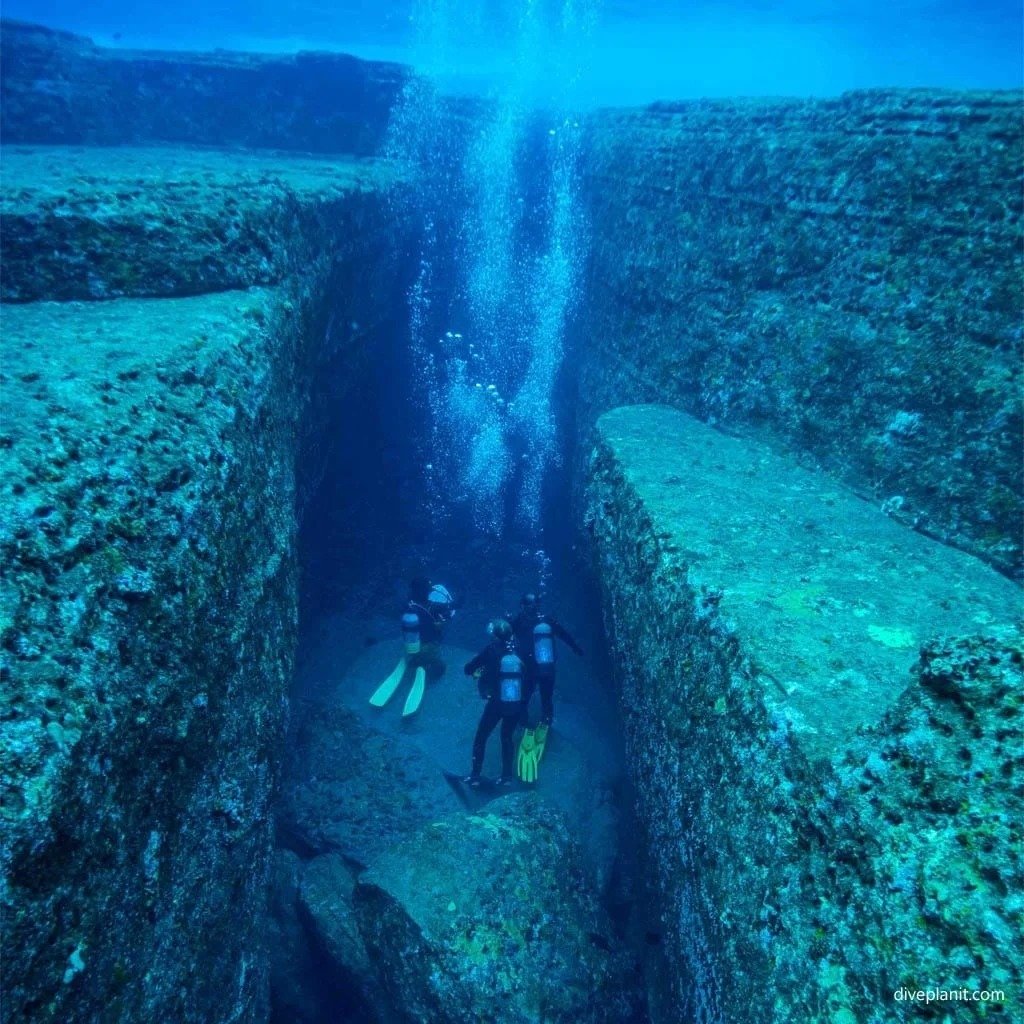
Dwarka, off the coast of Gujarat, India, has submerged ruins. However, there is scholarly disagreement over whether these are from the ancient Dwarka of mythological fame or a later historic site.

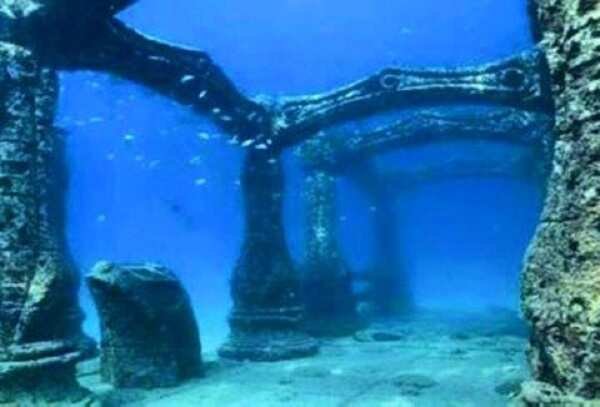
Thus, while underwater cities exist, interpretations vary and remain subjects of scholarly debate.
Limits to Human Reach
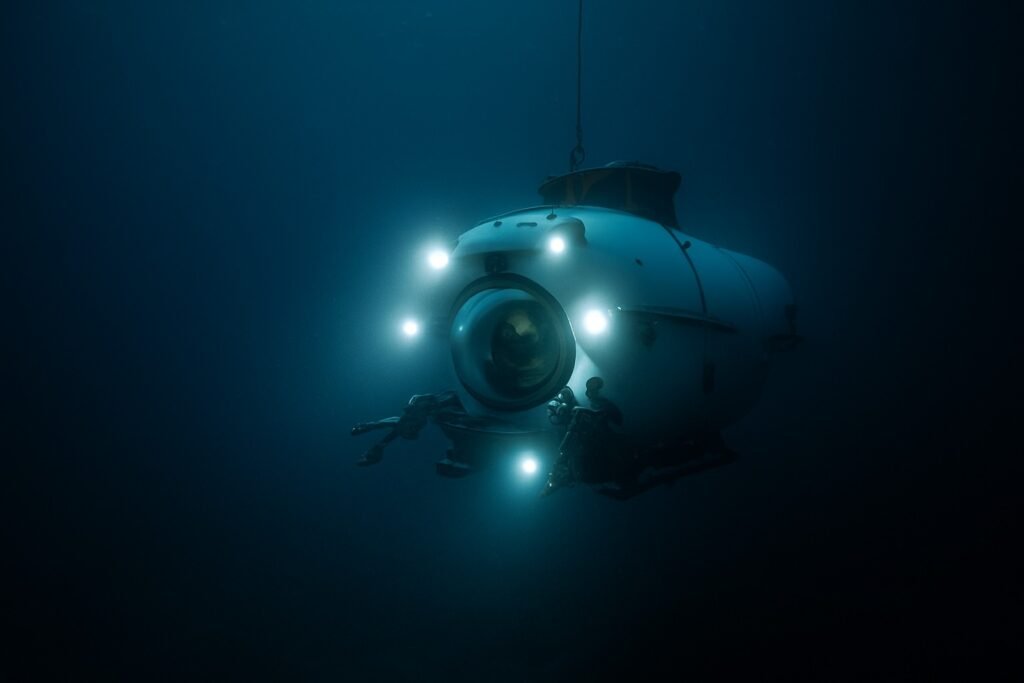
High pressure, lack of light, and freezing temperatures restrict exploration. Most deep-sea research is done using remotely operated vehicles (ROVs), autonomous underwater vehicles (AUVs), or deep-sea submersibles.
Could the Ocean Hold the Key to Our Future?
According to reports by the Intergovernmental Oceanographic Commission (IOC) and UNESCO:
Deep-sea ecosystems may provide rare minerals, pharmaceuticals, and sustainable biofuels.
Oceans play a critical role in regulating Earth’s climate.
Sustaining What Sustains Us: How the Ocean Supports Life
Oxygen Production
About 50–70% of Earth’s oxygen is produced by oceanic phytoplankton through photosynthesis (NOAA, 2023). This makes the ocean vital for breathable air.
Climate Regulation
Oceans act as a massive carbon sink, absorbing about 25–30% of the CO₂ humans emit annually (IPCC Report 2021). They help regulate global temperatures and climate.
Livelihoods and Economy
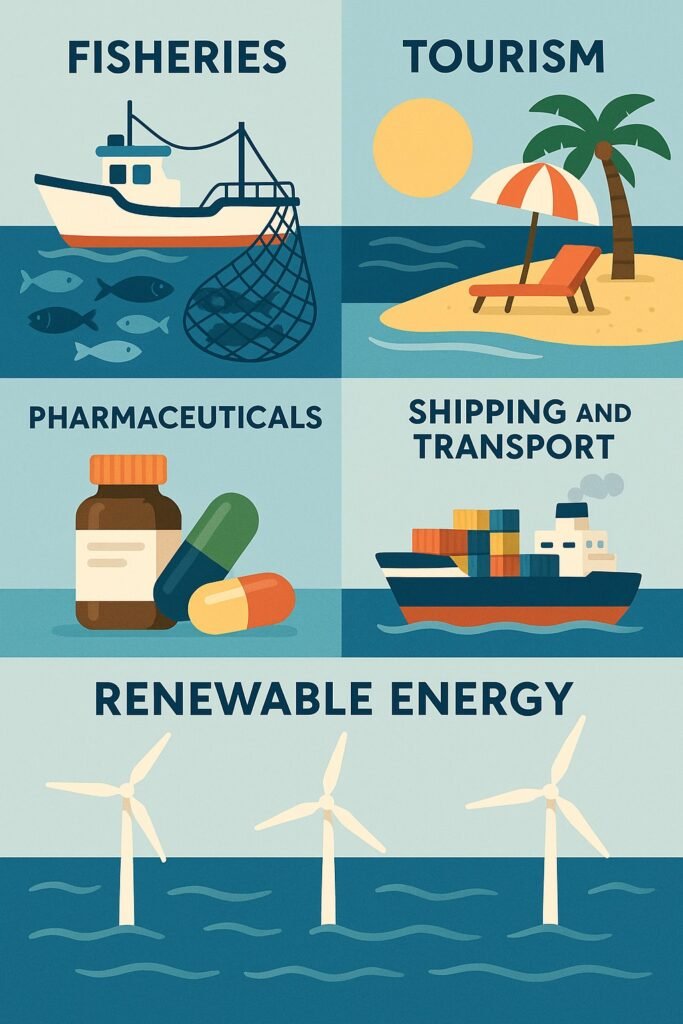
Over 3 billion people depend on oceans for their livelihoods. Oceans support industries such as:
- Fisheries
- Tourism
- Pharmaceuticals
- Shipping and transport
- Renewable energy
Biodiversity Conservation
The oceans are home to an estimated 230,000 documented species, with many more yet to be discovered (World Register of Marine Species). Coral reefs, plankton, fish, and marine mammals form a delicate and interconnected marine ecosystem crucial for the health of the planet.
Threats to the Ocean?
Despite being so vital, oceans face serious threats:
Overfishing
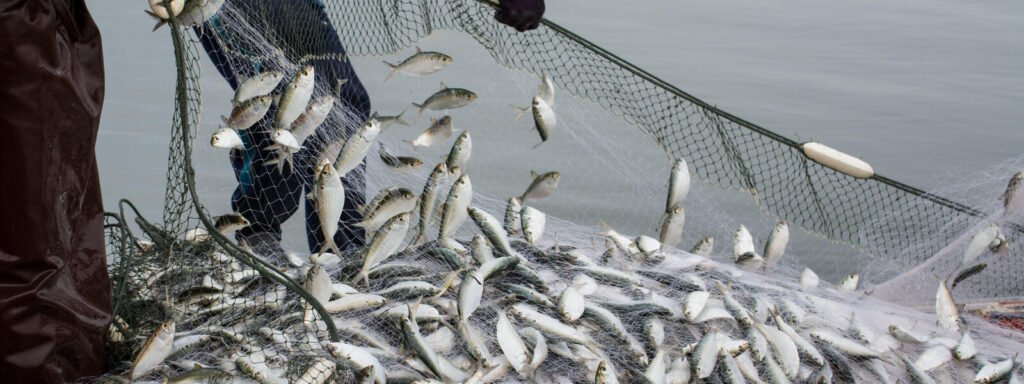
Unregulated fishing practices have led to the depletion of key fish species, threatening marine ecosystems and food security.
Illegal Capture of Marine Species
Turtles, dolphins, and other marine animals are often caught illegally, endangering their populations. Laws like CITES aim to prevent this, but enforcement remains inconsistent.
Excess Carbon Emissions
As CO₂ increases, oceans become more acidic, affecting coral reefs and shell-forming species. This process is known as ocean ‘acidification’.
Ocean acidification is the process by which oceans become more acidic due to absorbing excess carbon dioxide from the atmosphere. When industries and vehicles release CO₂, a large portion of it gets absorbed by the oceans. There, it reacts with seawater to form carbonic acid.
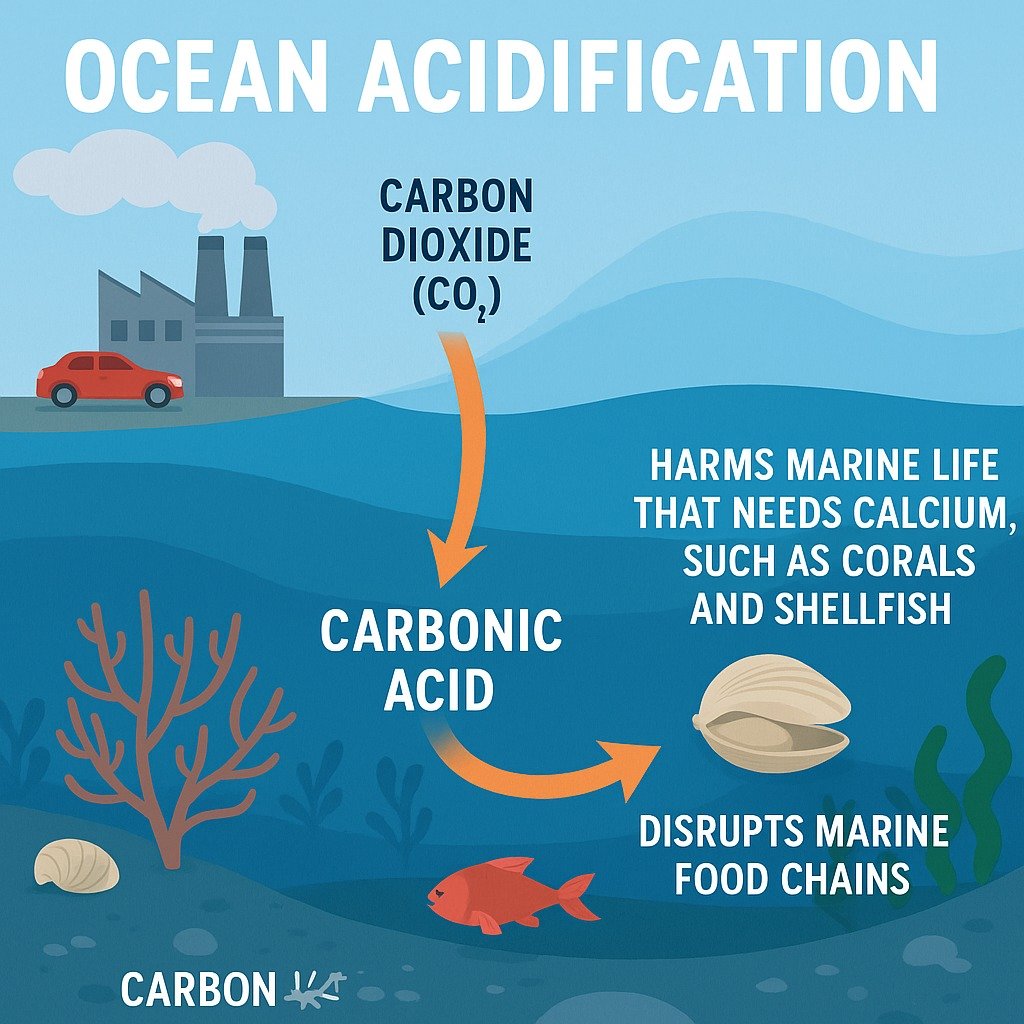
This chemical change lowers the pH of the water, making it acidic and harming marine life, especially corals and shellfish that need calcium to build their shells. Over time, it disrupts marine food chains and weakens the overall health of ocean ecosystems.
Plastic Pollution
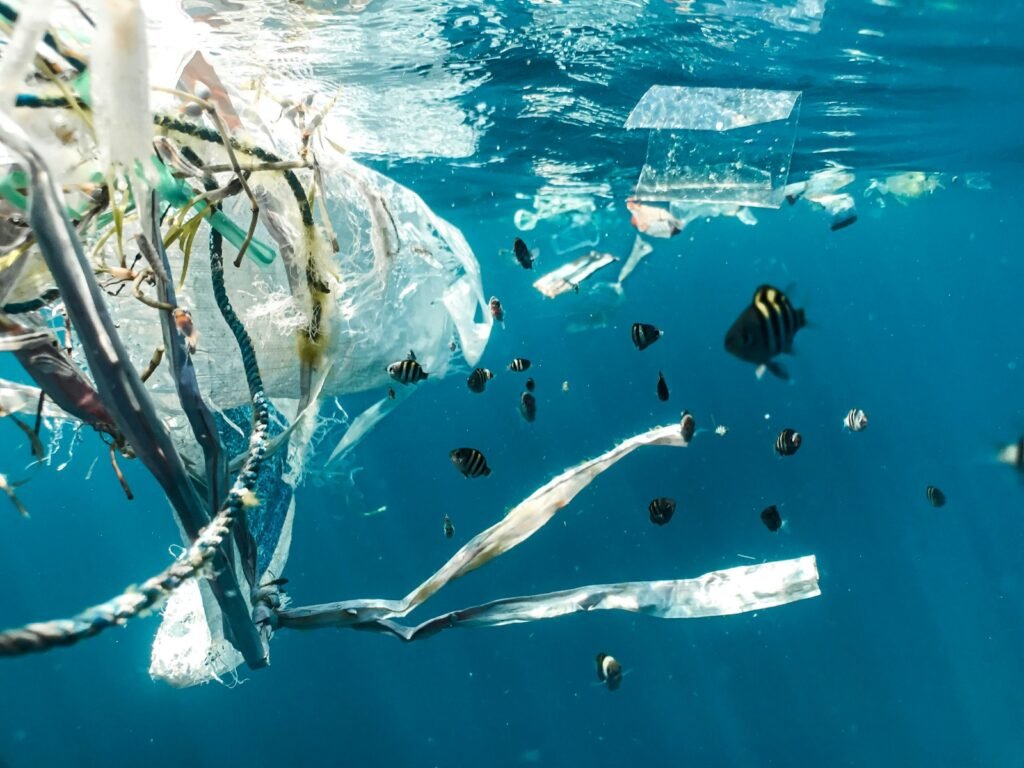
An estimated 5 to 12 million metric tons of plastic enter the ocean annually (Jambeck et al., 2015). Marine animals often ingest or get entangled in plastic, leading to death or injury.
This year’s World Environment Day theme was “Beat Plastic Pollution,” emphasizing the global urgency of the problem.
Other Pollution Forms
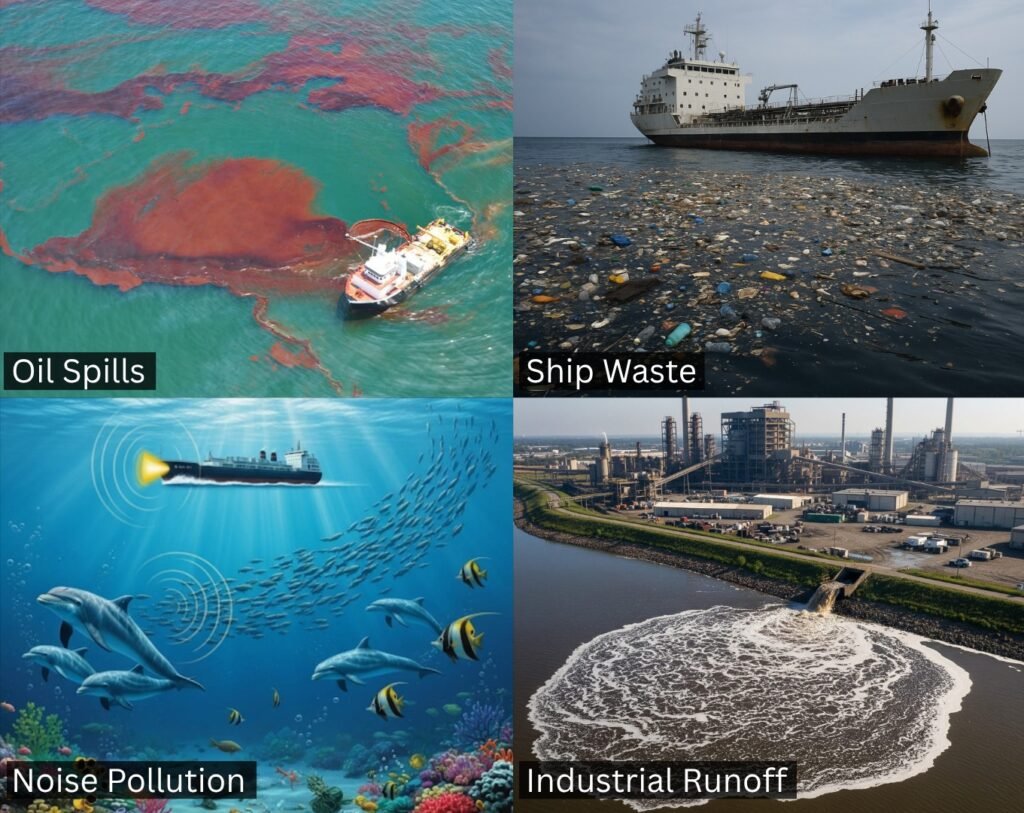
Oil spills, industrial runoff, noise pollution, and shipping waste are also major concerns affecting marine life.
How can we Protect Oceans
To sustain the ocean, we must:
- Regulate and reduce overfishing.
- Enforce laws against illegal marine wildlife trade.
- Cut down carbon emissions.
- Ban or reduce single-use plastics.
- Clean and restore coastal areas.
- Protect critical marine habitats like mangroves, coral reefs, and seagrass beds.
Conclusion: A Hidden World Calling Out to Us
The ocean is a realm of untapped knowledge and unmatched importance. We’ve only scratched the surface of its wonders. Understanding and protecting it is not just a matter of curiosity — it’s essential for our survival.
Yes, the ocean is a wonder. And it sustains what sustains us.


